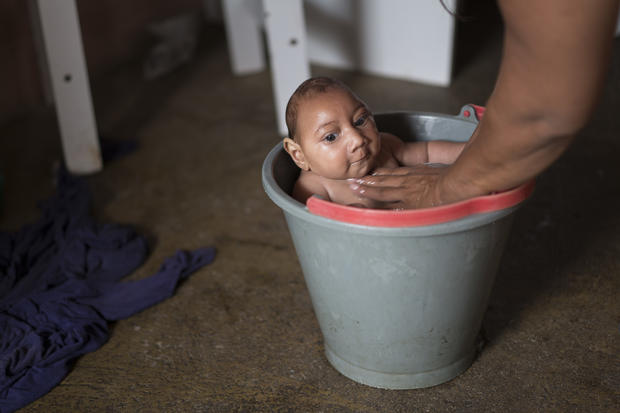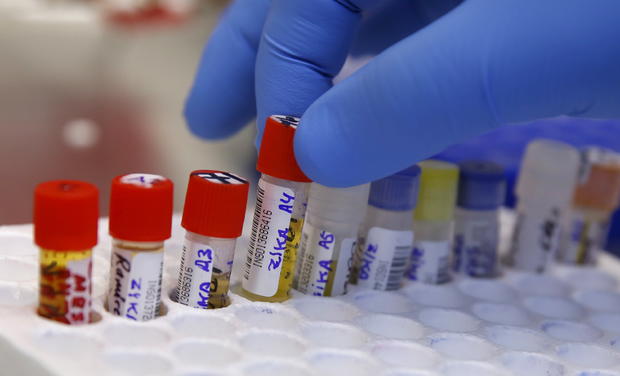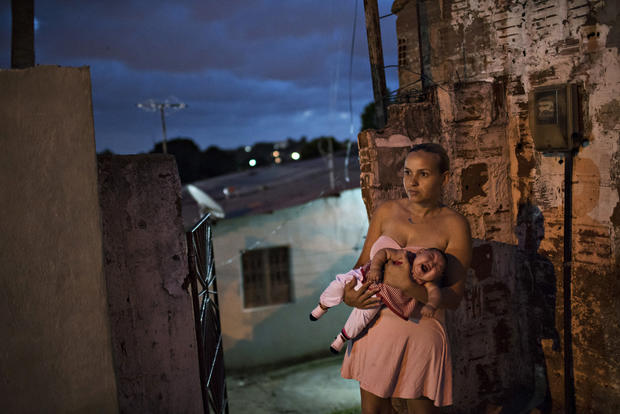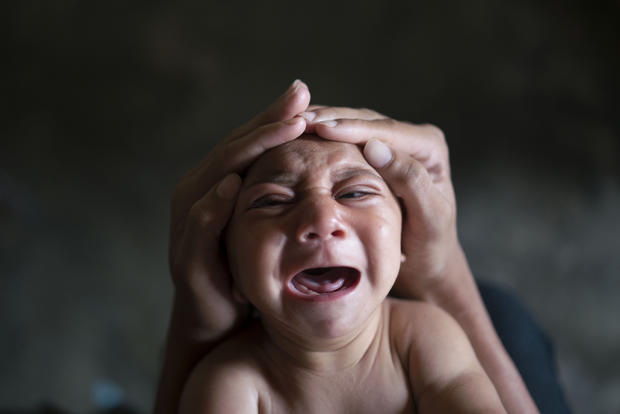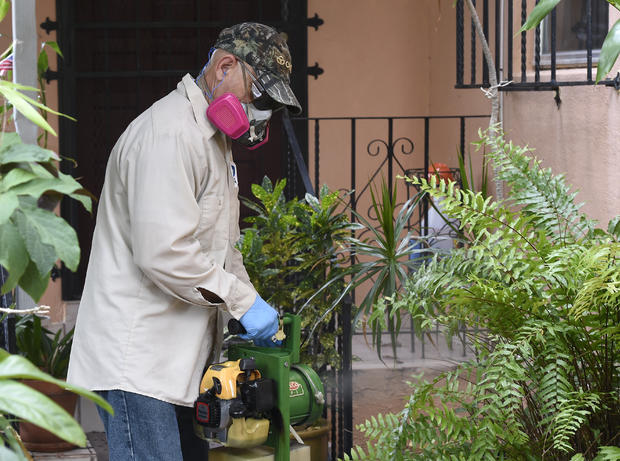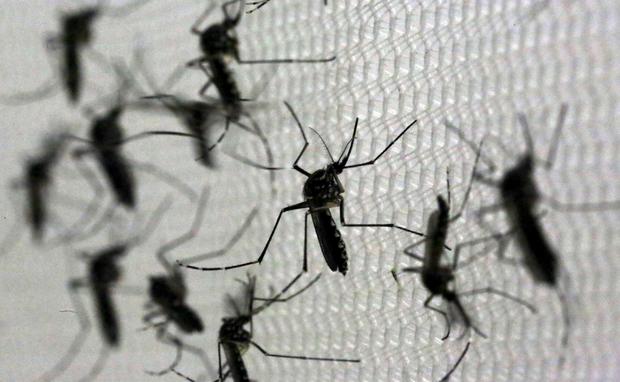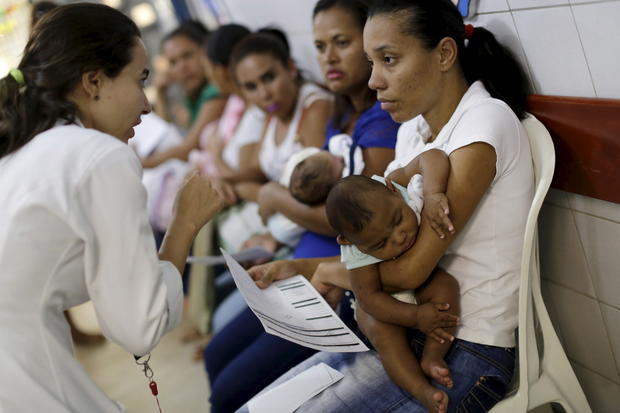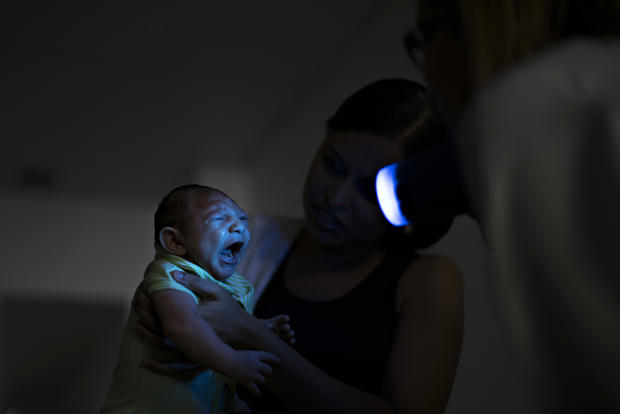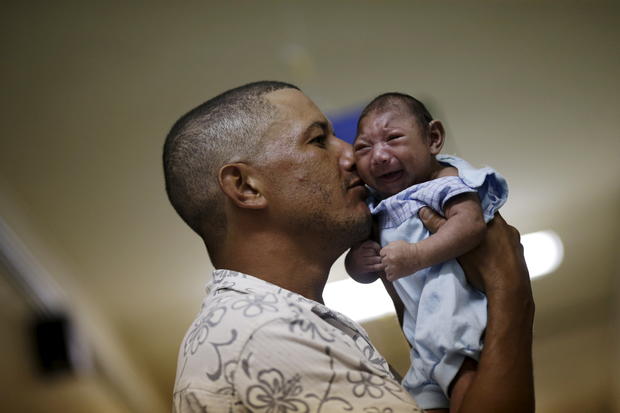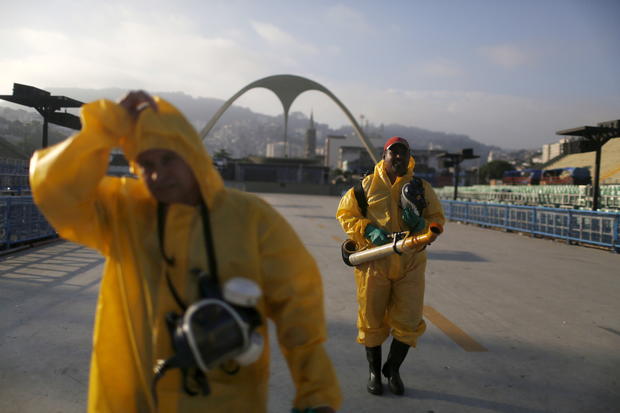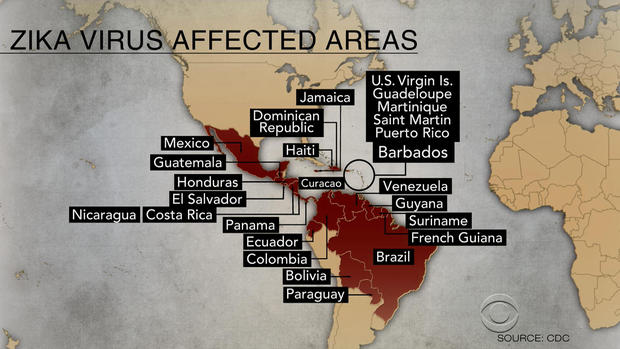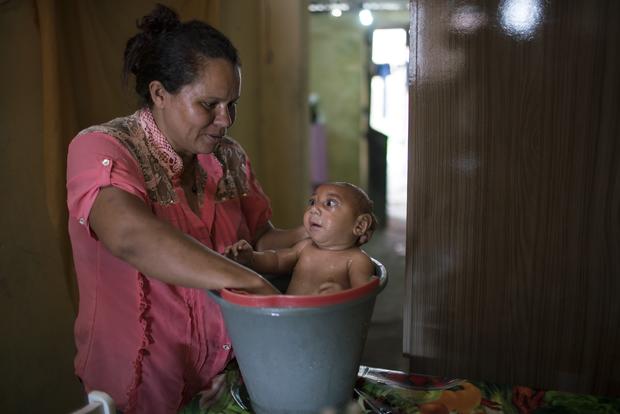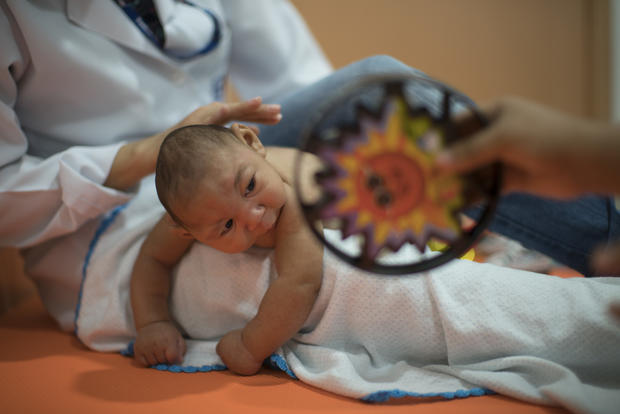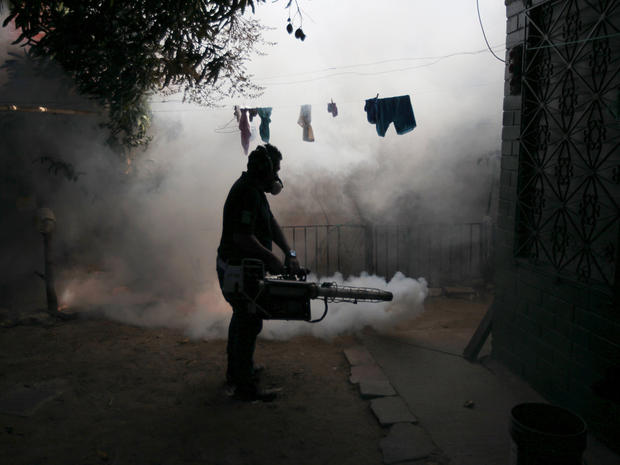20 alarming facts about the Zika virus
The Zika virus has been linked to a surge in the number of babies born with microcephaly in Brazil, a birth defect which causes infants to be born with abnormally small heads and corresponding brain damage.
Health officials in Brazil report more than 4,000 babies in Brazil were born with microcephaly in recent months, up from fewer than 150 in 2014. Brazil's health officials say they're convinced the jump is connected to Zika. "We are looking at the beginning of an epidemic in a country that has in between 200,000 and 300,000 births per year," said Rodrigo Stabeli, vice president of the Rio de Janeiro-based Fiocruz research institute.
There's no vaccine
There is currently no Zika vaccine and no cure. The U.S. National Institutes of Health is ramping up efforts to develop a vaccine, but the process will take time. In the meantime, the only way to treat Zika is to try to ease its symptoms.
Some patients develop paralysis
A number of Zika patients in Brazil have also developed a rare autoimmune condition called Guillain-Barré syndrome, which can cause at least temporary paralysis.
One survivor told CBS News, “I was paralyzed, I could not walk. All of my joints felt like lead weights.”
Most patients recover after a few weeks, but if the paralysis affects breathing it can be fatal.
As temperatures rise, so does risk
The mosquito behind the Zika virus seems to operate like a “heat-driven missile of disease.” The hotter it gets, the better the mosquito that carries Zika virus is at transmitting its buffet of dangerous illnesses, which also includes dengue fever and chikungunya, scientists say.
“With higher temperatures you have more mosquitoes feeding more frequently and having a greater chance of acquiring infection. And then the virus replicates faster because it’s hotter, therefore the mosquitoes can transmit earlier in their life,” said entomologist Bill Reisen of the University of California Davis.
Unprecedented travel warning
In August 2016, after numerous cases of locally transmitted Zika were discovered just north of downtown Miami, Florida, the CDC issued its first travel advisory for the continental U.S.
Pregnant women were urged to avoid travel to an area of Miami-Dade County known as the Wynwood arts district, as well as a portion of Miami Beach. Wynwood is a trendy neighborhood of art galleries, open-air exhibits, bars, restaurants, boutiques... and now, infected mosquitoes.
In addition, the CDC says, “Pregnant women and their sexual partners who are concerned about potential Zika virus exposure may also consider postponing nonessential travel to all parts of Miami-Dade County.”
Health emergency in Florida
Conditions in the Sunshine State are especially conducive for Zika; the mosquitoes that spread the virus thrive in Florida’s hot, humid climate. The first cases of locally-transmitted Zika in the U.S. were confirmed in late July 2016 in Miami-Dade and Broward Counties in South Florida.
“We’re a state that has the mosquitoes that are similar to the mosquitoes that could carry this, so it is better to get ahead of this,” Gov. Rick Scott said.
In December 2016, several suspected cases of local transmission were also reported in Texas.
You could miss the symptoms
Officials say symptoms of Zika in adults are generally mild, and can include a slight fever, rash, red eyes, headache and joint pain in the hands and feet. As such, they’re not necessarily symptoms that most people would go get checked out.
No symptoms
What’s even scarier, 80 percent of Zika patients show no symptoms at all, which means it’s likely there are many more cases than the official numbers indicate. It also means a person could be infected with Zika and not even know it -- while still spreading it to others.
Budget cuts may hamper response
In the U.S., public health departments in numerous states and counties have been hard hit by budget cuts, which could impact their response to a Zika outbreak, Dr. Lee Norman, chief medical officer at The University of Kansas Hospital, told CBS News. He’s also an intelligence officer in disaster medicine planning in the United States Army National Guard.
The head of the CDC, Dr. Tom Frieden, told CBS News: “I’m concerned we won’t have the resources we need to have a robust response, come up with better ways to find the virus and better ways to get rid of the mosquito.”
It can be transmitted through sex
The CDC has put out a set of guidelines with the aim of stemming the transmission of Zika through sex. Both men and women can spread the virus to their partners through sexual contact. Officials suggest that men who live in or have travelled to a country with a Zika outbreak should abstain from sex or use condoms while having sex with a woman who is pregnant or may become pregnant.
Pregnant women who have been to affected areas should talk about it with their doctor and get tested. If they show symptoms of illness, testing should be done within the first week.
Postponing pregnancy
Women in El Salvador, parts of Brazil and some other affected areas are being advised to avoid pregnancy for up to two years. But a huge number of pregnancies every year are unplanned, and many women in the region have limited access to birth control.
The CDC has more information about Zika and staying safe during pregnancy.
2016 Olympics
Before thousands of people descended upon Rio for the Olympics in August 2016, some raised concerns that the event could be a ticking time bomb for a wider outbreak. But the World Health Organization said in June that it foresaw a “very low risk” of further spread, since the games were scheduled for Brazil’s winter season when mosquitoes are less of a problem.
Olympic athletes concerned
British long jump champion Greg Rutherford decided to have some of his sperm frozen before heading to the Rio Games this summer, his partner said, over fears the Zika virus could impact their plans to have more children.
Several well-known athletes and journalists, including NBC’s Savannah Guthrie, who is pregnant, decided to skip the Rio Olympics due to concerns about Zika.
It's spreading fast
Since the first local case of Zika virus was confirmed in Brazil in May 2015, health officials estimate between 440,000 and 1.3 million people there have caught it. The mosquito-borne illness was first identified in the Americas less than two years ago and has spread rapidly across South and Central America and the Caribbean.
The World Health Organization estimates that up to four million people will likely contract the virus in the next year.
Long-term implications
Dr. Angela Rocha, who heads up the effort to understand and manage the crisis at the Oswaldo Cruz Hospital in Recife, Brazil, told CBS News that in her four decades as a pediatric infectious disease specialist, she has never seen anything like this outbreak.
“This is different,” she said. “It’s a generation of babies with disability, which is a huge social, economic and public health problem.”
Spread through blood
According to the CDC, spread of the virus through blood transfusion has been reported. As such, the American Red Cross has requested prospective donors who have visited countries affected by the viral outbreak to wait at least 28 days before giving blood.
Carnival put a lot of people at risk
In order to prevent mosquito bites, the CDC recommends wearing long-sleeved shirts and long pants when outside in affected countries. Thousands of revelers at this year’s Carnival festival, in early February 2016, however, wore a lot less. The celebration is famous for its skimpy costumes, and many revelers wear little more than shorts and bikini tops.
Travel alert
It’s not just Brazil. The CDC has named more than 50 countries and territories in its most recent travel alert, including most of South and Central America, the Caribbean, and a number of islands in the South Pacific.
Pregnant women are urged to avoid travel to these areas, and anyone who visits should protect themselves from mosquito bites.
World Cup
Global sporting events, like the Olympics, can be a flashpoint for infectious disease outbreaks.
In fact, many believe Zika started spreading as far back as the World Cup in 2014, when hundreds of thousands of fans from around the world descended on cities throughout Brazil.
Not every repellent works
Not every mosquito repellent is equal when it comes to combatting the Aedes Egypti that transmits Zika. Consumer Reports found that repellents with either 25 percent DEET or 20 percent Picardin work best. So, Sawyer Fisherman’s Formula Picaridin, Natrapel 8 Hour and Off! Deepwoods VIII are all good choices.
Products that utilize natural plant oils, like soybean oil, geraniol and citronella, may not work at all.
The devil's in the DEETails
Mosquito repellents with more than 30 percent DEET should be avoided. According to Consumer Reports, “concentrations of 30 percent provide the same protection against mosquitoes as higher percentages for up to 8 hours.”
All that extra DEET does is increase your risk for side effects like rashes, disorientation, and seizures... without giving you any extra protection against Zika.

